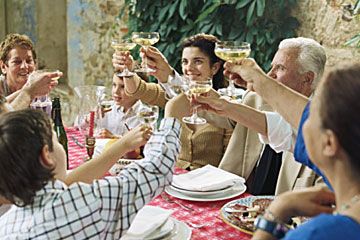When the 1993 Chicago Bulls found themselves down by two points to the Phoenix Suns in the waning seconds of Game 6 of the NBA Finals, the ball was put in the hands of an unlikely hero, rather than star Michael Jordan. Guard John Paxson calmly hit a 3-pointer that earned Chicago the championship. Asked later about his clutch shot, Paxson simply said, "I've done it hundreds of thousands of times in my driveway. It's what I've practiced." The habit became instinct for Paxson and, as a result, the Bulls began to make a tradition of winning the big game [source: Winderman].
Habit and tradition share a common characteristic: Both involve repetitive actions that a person feels compelled to take, whether it's a conscious decision or not. But there's also a decided difference between the two. For instance, you may feel compelled to pick your nose while sitting in your car at a red light -- something we can all agree would fall under the category of "nasty habit" -- but you probably wouldn't call it a tradition. Let's hope not, anyway [source: Longman].
Advertisement
So, where does the distinction between a habit and a tradition lie? To answer that question you have to examine who is taking the action, what they're motivated by and the period of time over which the action is repeated [source: Longman]. The "who" part is easy. A habit applies to an individual or small group, while a tradition typically applies to a larger body of people. The word "family," for example, is often pared with "tradition," but family and habit are not linked together in common language [source: Longman]. A habit begins the process of evolving into a tradition when it extends beyond the individual and affects an expanding group. But that's only part of the change that must take place.



